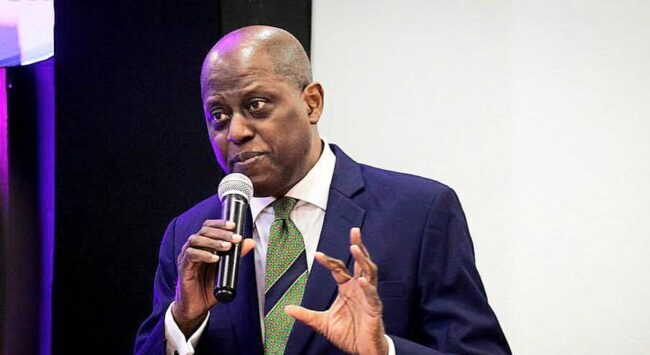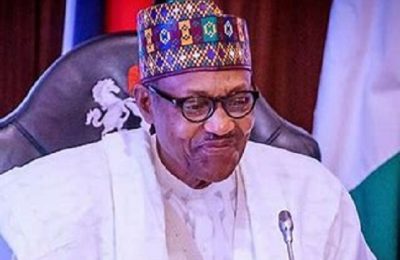
There are indications that mounting debts owed to contractors by Nigerian states are threatening the developmental projects at the sub national levels of government.
Findings showed that with billions of naira in unpaid obligations, critical projects across the country remain stalled, exacerbating infrastructure gaps and eroding public confidence. Data from BudgIT revealed that over 25 states owe contractors significant sums totalling over N410 billion in 2023, highlighting the widespread fiscal strain impacting development efforts.

Available data gleaned by BudgIT from the National Bureau of Statistics (NBS) showed that Delta State tops the list of indebted states with N76.26 billion owed to contractors, followed by Imo (N43.47 billion), Cross River (N39.12 billion), and Kano (N37.04 billion).
Akwa Ibom with N31.07 billion, Anambra N24.26 billion and Gombe N23.74 billion are also among the leading debtors.
Others are: Adamawa (N19.17 billion), Plateau (N14.96 billion), Benue (N13.02 billion), Kebbi (N11.27 billion), Zamfara (N10.7 billion) Bauchi (N10.69 billion), Osun (N10.04 billion), Kaduna (NM8.97 billion) Kwara (N7.81 billion) Enugu (N7.43 billion), Sokoto (N6.33 billion) Borno (N4.08 billion), Oyo (N2.78billion), Ekiti (N2.32 billion), Katsina (N2.08 billion), Niger (N1.08 billion) Jigawa (N0.98 billion) Kogi (N0.47 billion), Taraba (N0.23 billion), Ebonyi (N0.20249 billion).
Conversely, states like Lagos, Rivers, Bayelsa, Abia, Edo, and Yobe reported no contractor debts, showcasing stronger fiscal discipline and sound financial management.
The South-South region bears the heaviest contractor debt burden, driven by significant arrears in Delta, Cross River, and Akwa Ibom states. In the North-East, Gombe and Adamawa are the major contributors to the region’s liabilities, while Kano leads in the North-West.
In stark contrast, most states in the South-West region, including Lagos, Ogun, and Ondo, reported zero debts, earning recognition for their financial prudence.
The implications of these debts are far-reaching. Contractors unable to secure timely payments have been forced to abandon projects or downsize operations, delaying infrastructure development and disrupting essential services.
Analysts say this stagnation has ripple effects, including reduced employment opportunities, weakened household purchasing power, and diminished public trust in governance.
The International Monetary Fund (IMF) has expressed concern over the impact of these fiscal challenges on development spending. It warned that “this environment of limited financing and high debt service is already having a significant impact on the resources available for development spending.” High debt servicing costs, coupled with limited financing options, leave states with little room to invest in critical sectors, perpetuating cycles of underperformance and public dissatisfaction.
Experts argue that resolving contractor indebtedness require a multifaceted approach. Dr. Muda Yusuf, CEO of the Centre for Promotion of Private Enterprise, emphasised the need for fiscal discipline, nothing that “states must observe fiscal discipline to address this crisis. Collaboration with the private sector through public-private partnerships (PPPs) can offer alternative funding for infrastructure projects.”
Others also advocate federal intervention to stabilize debt-ridden states and prevent further escalation of contractor liabilities.
Enhanced transparency in budgeting and innovative financing solutions are also critical. States must prioritize clearing outstanding debts to contractors to rebuild trust and ensure project continuity. The adoption of sustainable fiscal practices, coupled with strategic planning, can help mitigate the challenges posed by these debts.
While some states, such as those in the South-West, demonstrate models of financial responsibility, the broader fiscal landscape remains concerning. The IMF’s statement underscores the urgency of addressing these issues to unlock Nigeria’s developmental potential. Without swift action, delayed projects and dwindling resources will continue to undermine economic growth and citizens’ welfare.
The stakes are high, but with a commitment to fiscal discipline, strategic resource allocation, and innovative partnerships, Nigeria can overcome these challenges. By prioritising contractor payments and addressing structural inefficiencies, states can pave the way for sustainable development and restore confidence in governance.
Indebtedness to contractors by state—2023
1 Delta—N76.26bn
2 Imo—N43.47bn
3 Cross River—N39.12bn
4 Kano—N37.04bn
5 Akwa Ibom—N31.07bn
6 Anambra—N24.26bn
7 Gombe—N23.74bn
8 Adamawa—N19.17bn
9 Plateau—N14.96bn
10 Benue—N13.02bn
11 Kebbi—N11.27bn
12 Zamfara—N10.7bn
13 Bauchi—N10.69bn
14 Osun—N10.04bn
15 Kaduna—N8.97bn
16 Kwara—N7.81bn
17 Enugu—N7.43bn
18 Sokoto—N6.33bn
19 Borno—N4.08bn
20 Oyo—N2.78bn
21 Ekiti—N2.32bn
22 Katsina—N2.08bn
23 Niger—N1.08bn
24 Jigawa—N0.98bn
25 Kogi—N0.47bn
26 Taraba—N0.23bn
27 Ebonyi—N0.20249bn
28 Abia — N0bn
29 Edo — N0bn
30 Bayelsa — N0bn
31 Yobe — N0bn
32 Nasarawa — N0bn
33 Ondo, Ogun, Rivers, Lagos — Nill
NE NW SS NC SE & SW
#Statisense
(BudgIT)
Indebtedness to contractors and internally generated revenue by zone—2023
Indebtedness, 2023
1 South-South—N146.46 billion
2 North-West—N77.37 billion
3 South-East—N75.36 billion
4 North-East—N57.91 billion
5 North-Central—N37.34 billion
6 South-West—N15.14 billion
READ ALSO: Revenue collector crushed to death in Lagos







